
I think most of us have a horror of insects, or at least of some insects. Creepy-crawlies give us the creeps, and many react like little Miss Muffett to spiders (which are insects in English if not in Biology.) I have a particular dislike for wasps, though I feel that this is entirely rational after sitting down in the dark too close to a nest on a trip to http://www.buildingsoflondon.co.uk/pm/borders/ Hawick in 2004 left me with multiple stings and a day or two of total delerium.
But of course insects are essential to life on the planet, part of the complex web of ecosystems that in particular allows us to grow food. We rely on them, particularly bees, to pollinate so many crops. And bees have in recent years been subject to huge declines in population, with the increasing use of pesticides and herbicides being a major cause.
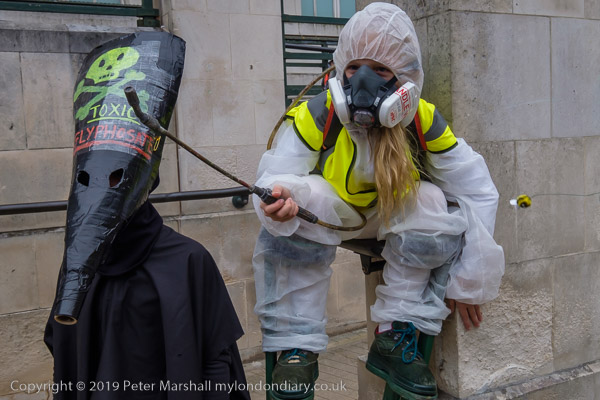
Herbicides – of which the best-known and most widely used is Monsanto’s Roundup, containing glyphosate – are used to stop the growth of plants. It can be used on some growing crops as it is more readily absorbed through the broader leaves of weeds than most crops, and varieties have been developed that are resistant to it, but it is also sprayed on field and road edges to kill weeds there.
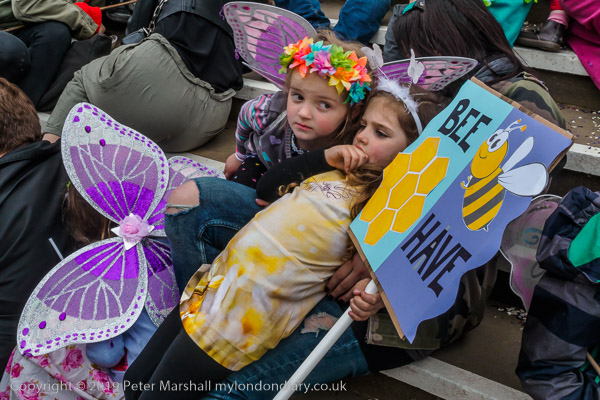
Many insects, including bees, are heavily reliant on these weeds and their flowers as a source of nectar to feed on, and herbicide use means the land can only sustain smaller numbers. Recent research has show a more direct effect on bees, with glyphosate at widely used levels in fields and on verges killing beneficial bacteria in bee guts, rendering them more susceptible to disease and infection.
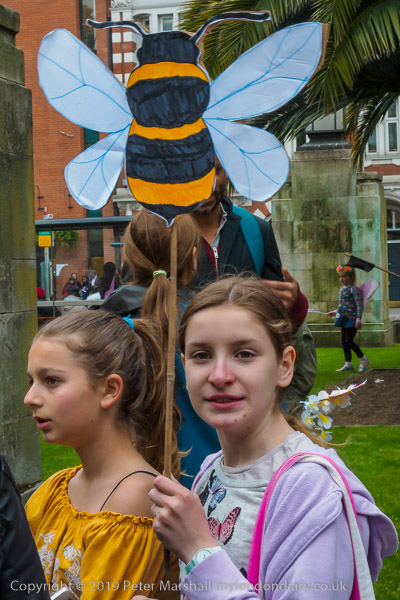
Some studies have also found direct effects on human health and Monsanto who introduced glyphosate as a herbicide (though many other companies now market it) have been accused both of trying to prevent publications of these and of sponsoring research which falsely reports an absence of such effects. Some US courts have come out in favour of huge settlements to workers over claims that using it have caused cancers, but the danger to the general public from exposure seems very low.
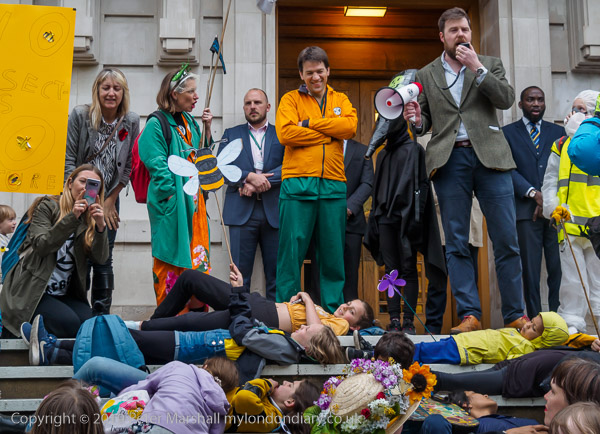
Hackney Council uses glyphosate to control roadside weeds and many Hackney residents also use this and other insect-harming chemicals in their gardens. The protest by Extinction Rebellion parents and children outside the council offices called on the council to completely end its use, and a man from the department concerned came to say they had reduced their use and were hoping to find ways it could be eliminated.
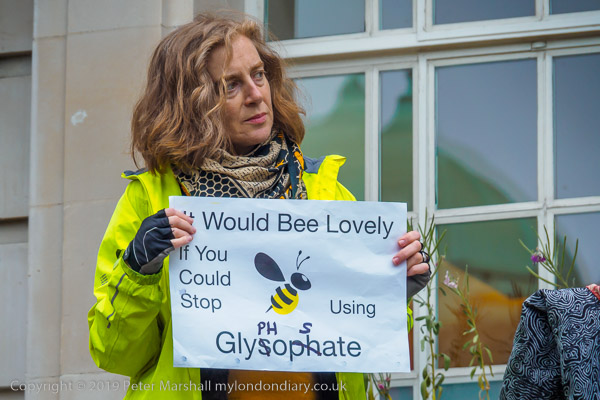
I don’t live in Hackney, but of course we need to stop or at least greatly reduce the use of glyphosate across the world. Years ago we used to have council workers coming regularly even to back streets like the one we live in armed with a spade to remove the weeds growing at the kerb. They were replaced by a machine with brushes that kept some of them down, but couldn’t clean most gutters as there were cars parked along the street. So the weeds grow. Occasionally a resident will go out with a spade and clear the short section in front of their house, but usually they grow until a long dry spell kills them, they die down and reappear after more rain.
More at XR tell Hackney stop killing insects.
All photographs on this and my other sites, unless otherwise stated, are taken by and copyright of Peter Marshall, and are available for reproduction or can be bought as prints.
There are no adverts on this site and it receives no sponsorship, and I like to keep it that way. But it does take a considerable amount of my time and thought, and if you enjoy reading it, please share on social media.
And small donations via Paypal – perhaps the cost of a beer – would be appreciated.